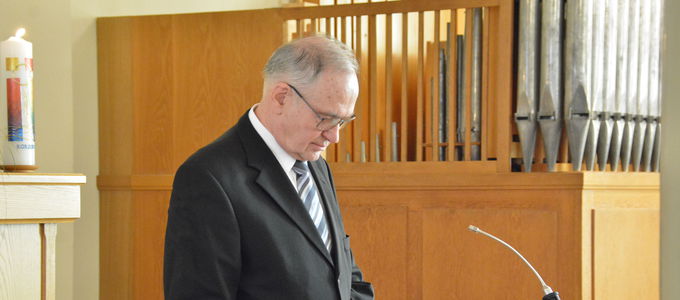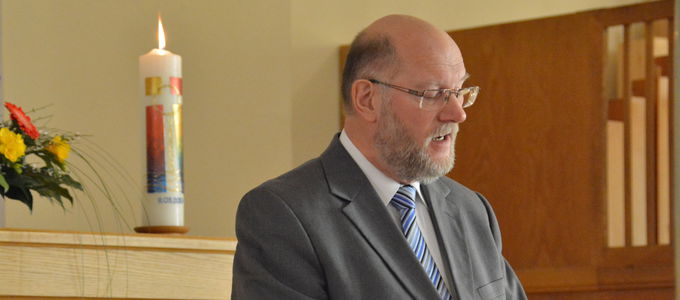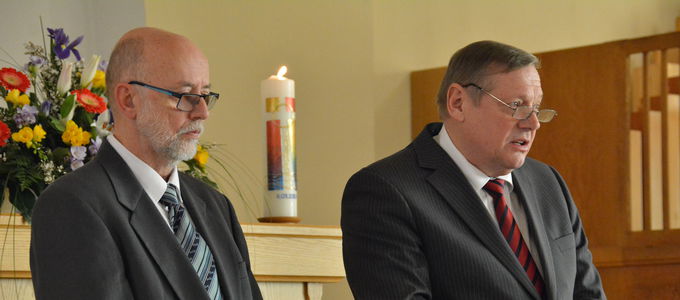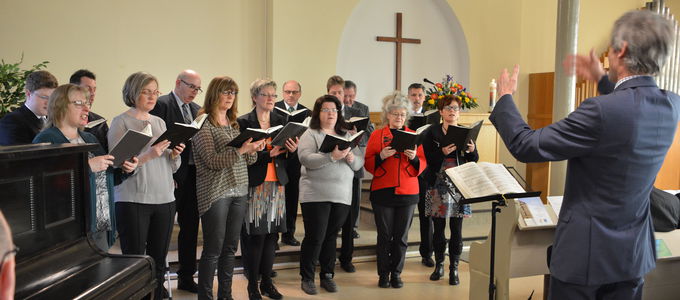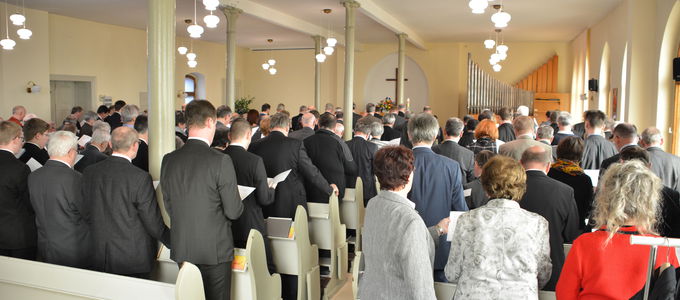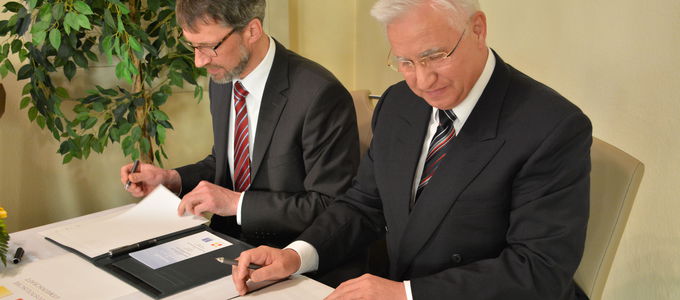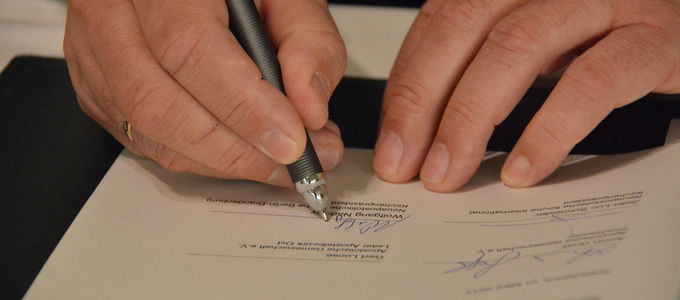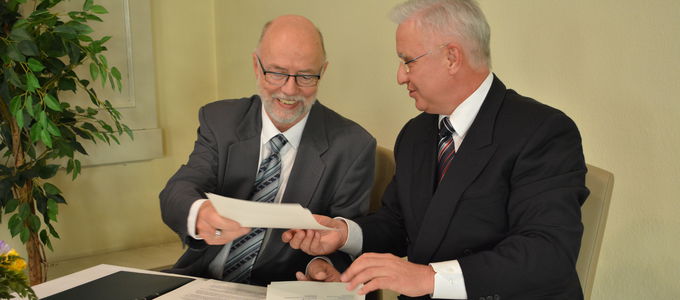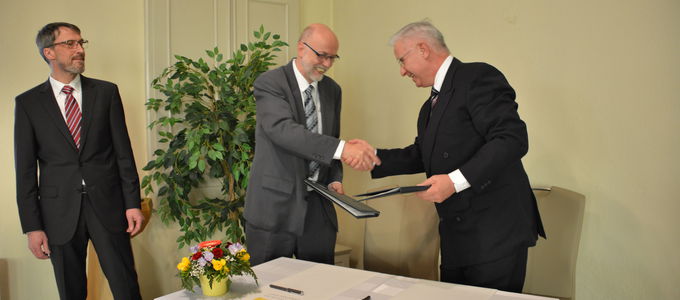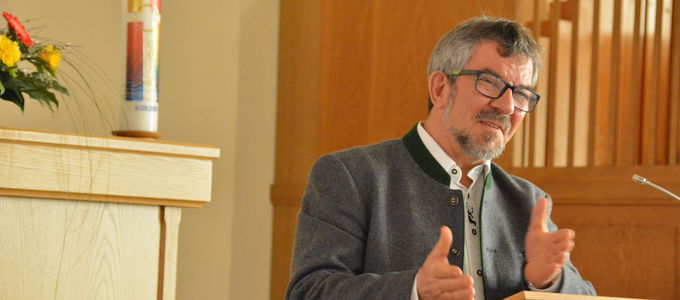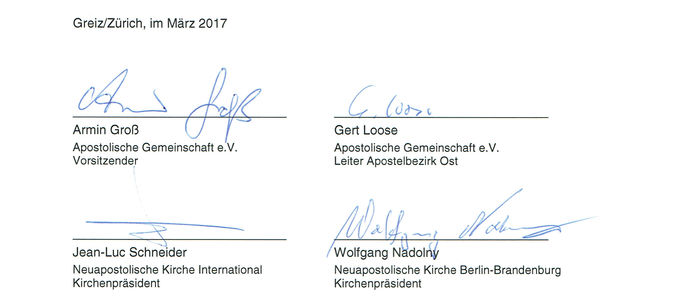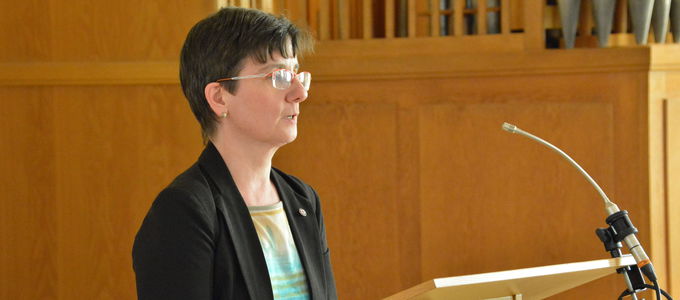
In 1921 they separated, in 2017 they reconciled: a reconciled co-existence was at the core of the prayer service attended by both the Apostolic Community and the New Apostolic Church.
Apostle District of Dresden: this was the name of the New Apostolic Church in this part of Germany ninety-six years ago. It was headed by the Apostles Carl August Brückner and Max Ecke. Together with some six thousand members they left the Church and established the Reformed Apostolic Association (RAG). Chief Apostle Hermann Niehaus, the leader of the New Apostolic Church at the time, wrote to his congregations: “I am very sad to have to announce the following,” Chief Apostle Niehaus wrote. “Mr Carl August Brückner has been dismissed from the Apostle ministry and has been expelled from the New Apostolic Church.” What followed was a long time of silence, disappointment, and bitterness.
The leitmotiv is reconciliation
Contact was never completely severed. Especially over recent years, the two denominations have been in contact more often. Ultimately, the longstanding official talks between the Apostles of the New Apostolic Church and the United Apostolic Church (VAG) led to the breakthrough: the idea of reconciliation gained the upper hand and became the leitmotiv of the joint discussions. “The Apostolic Community and the New Apostolic Church wish to mend their relationship with one another and go into the future in reconciliation and mutual respect for one another.” This was the key statement in the Statement of Reconciliation with the United Apostolic Church in the year 2014.
2017: the year of the turnaround
The year 2017 will mark a turnaround in the relations between the two Apostolic Churches in Saxony and Thuringia (Germany). In Greiz, in Vogtland in Germany, where the Apostolic Community has a stately parish hall, Apostle Matthias Knauth—who hosted the event—expressed his wishes and goals for the future, and in some personal words confided that he was part of the Reformed Apostolic Association (RAG) and that he has found his home. “Divisions within Christendom are a scandal. They are an obstacle on the road that leads to unity with Christ,” he concluded. That is why the Apostolic denominations should be good examples and put an end to conflicts and disputes. He stated that the declaration by the then Chief Apostle Leber regarding the message of Johann Gottfried Bischoff had marked the turning-point in the internal relations of the two Churches. “That reversed the situation.” For him this process of reconciliation now means: “We have forgiven each other. We will not inflict new wounds. We will talk with each other and pray for one another.”
Reconciliation, a gift from God
District Apostle Wolfgang Nadolny, who spoke on behalf of the German District Apostles and conveyed greetings from Chief Apostle Jean-Luc Schneider, underlined this approach. The Statement of Reconciliation marks the end of a painful common past. “We have created reconciliation. The mission for this we received from our brothers and sisters! But instrumental was the commission of Jesus Christ, our Lord and Saviour.” Of course, the District Apostle went on, we could ask why this reconciliation took so long. His answer: “Disputes in the family are always more painful than disputes with strangers.”
The head of the Ecumenical Centre of the Council of Christian Churches (ACK) in Germany, Pastor Bernd Densky, was happy to embrace this thought and said that reconciliation is a gift from God. And where reconciliation takes place, the Lord rejoices. “It has taken place here now, and must now take full effect.”
Reconciliation instead of conflicts
There were nearly 150 guests, who were each presented with a copy of the already signed Statement of Reconciliation. Among other things, it states that both parties are convinced today that the separation could have been avoided. It would, however, have required an intensive and objective clarification in direct dialogue and the decisive and persistent will of both parties to reconcile. “Both Churches regret the irrational and hurtful nature of this dispute. Together we welcome the fact that with this statement a further chapter in our joint history has been closed peacefully.”






